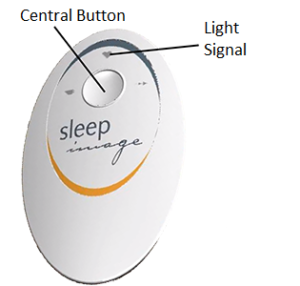What is sleep apnea?
It is a very common sleep disorder, mostly in men. With this disorder, people snore in their sleep, and after sleeping, they experience lack of sleep and lethargy during the day. Apnea is associated with a large number of interruptions in breathing during sleep, resulting in oxygen deprivation, changes in heart rate and BP imbalances.
Long pauses in breathing during sleep, i.e. those lasting more than 10 seconds, are divided into types:
– Obstructive apnea. Its most common cause lies in the area of ENT diseases. In sleep, muscle tone decreases, causing the airways to constrict. The same cause of apnea is overweight, malformations of the tongue and palatine uvula.
– Central apnea
Quality of sleep and breathing during sleep is important for our daily mental and physical activity. Quality of sleep directly affects the quality of life. In very rare cases, failure to treat apnea can lead to fatal consequences.
Choking, shallow sleep leads to a significant decrease in the quality of sleep, and as a consequence, constant sleepiness during the day.
What are the causes of sleep apnea?
Very often, it is an obstruction of the upper airways, the pharynx, which is compensated during the day, but reappears during sleep.
Sleep apnea most often has a family factor.
Risk factors
- Excess weight
- Age (after 65 years of age, the risk of apnea increases 2 or 3 times)
- Gender (men are 2 to 3 times more likely to suffer from sleep apnea than women)
- Ethnicity (African-Americans and Asians are at higher risk of developing sleep apnea)
- Genetics
- The larger the neck circumference, the higher the risk of apnea
- Alcohol
- Drugs
- Diabetes
- Smoking
People close to the patient, who are in constant contact with the patient, notice signs of sleep apnea (snoring and difficulty breathing). Without them, the patient may often not even be aware that he or she is experiencing sleep apnea.
A consultation with our specialist is recommended if you have any of the following symptoms :
- Sleepiness during the day and while driving
- Noisy snoring followed by shortness of breath
- Choking snoring while sleeping
- Headaches after sleeping
- Mood swings, irritability
- Difficulty concentrating or forgetfulness
- Decrease in libido
What to do about it?
Sleep apnea can be of varying degrees of severity. An examination is necessary to choose the best treatment.
If you have a mild degree of apnea, you will probably be advised to adjust your lifestyle:
- Reduce weight: obese people are more likely to have apnea. Losing even a few pounds can already improve the situation, and reduce the frequency of sleep apnea episodes.
- Active physical activity shortly before sleep can disrupt it. Exercise during the day to normalize your weight.
- Falling asleep early improves sleep depth and quality.
- Refrain from drinking alcoholic beverages before going to bed: alcohol and a number of medications relax muscles, aggravating the severity of apnea and hypoxia.
- It is better to sleep on the side: it is important that the pillow holds only the upper part of the face, this will avoid excessive relaxation of the jaw and will not allow the upper airways to shrink too much.
For more severe sleep apnea, our specialist will create a personalized treatment protocol for you to reduce or eliminate this disorder:
- Dentistry: there are dental devices that are very effective in mechanically expanding the flow of air through the throat during sleep. For mild apnea, our specialist can prescribe this device.
- C.P.A.P. – The C.P.A.P. pressure unit adapts to each patient and is designed to prevent airway collapse during sleep. The pressure in the unit varies according to the severity of the apnea. There is one disadvantage of this device, for the husband/wife, it looks a little asexual.
- The radiofrequency procedure compresses the tissues of the throat or tongue and expands the area in the throat. The success rate of this procedure is not consistently as satisfactory as one would like.
- The surgical treatment reduces the obstruction in the airway, thus widening the passage of air.
DIAGNOSIS OF SLEEP APNEA
Our portable polysomnography is the first and only one in Switzerland
We offer our patients the use of our portable polysomnography for the early diagnosis of sleep apnea.
The polysomnography can be done quickly and comfortably for 1 or maximum 2 nights with a stay followed by a consultation with our physician.

In order to carry out the examination, we attach our small device to the patient’s chest before sleep. The patient sleeps with the device one or two nights. The next day, the client returns the device to us. We will send to the client a medical report from our attending physician with an opinion about the quality of sleep, potential risks and recommendations for correction.
Cost of the examination with our machine, specialist consultation and discharge CHF 980.00
Make an appointment to see if you have sleep apnea and how it can be treated








